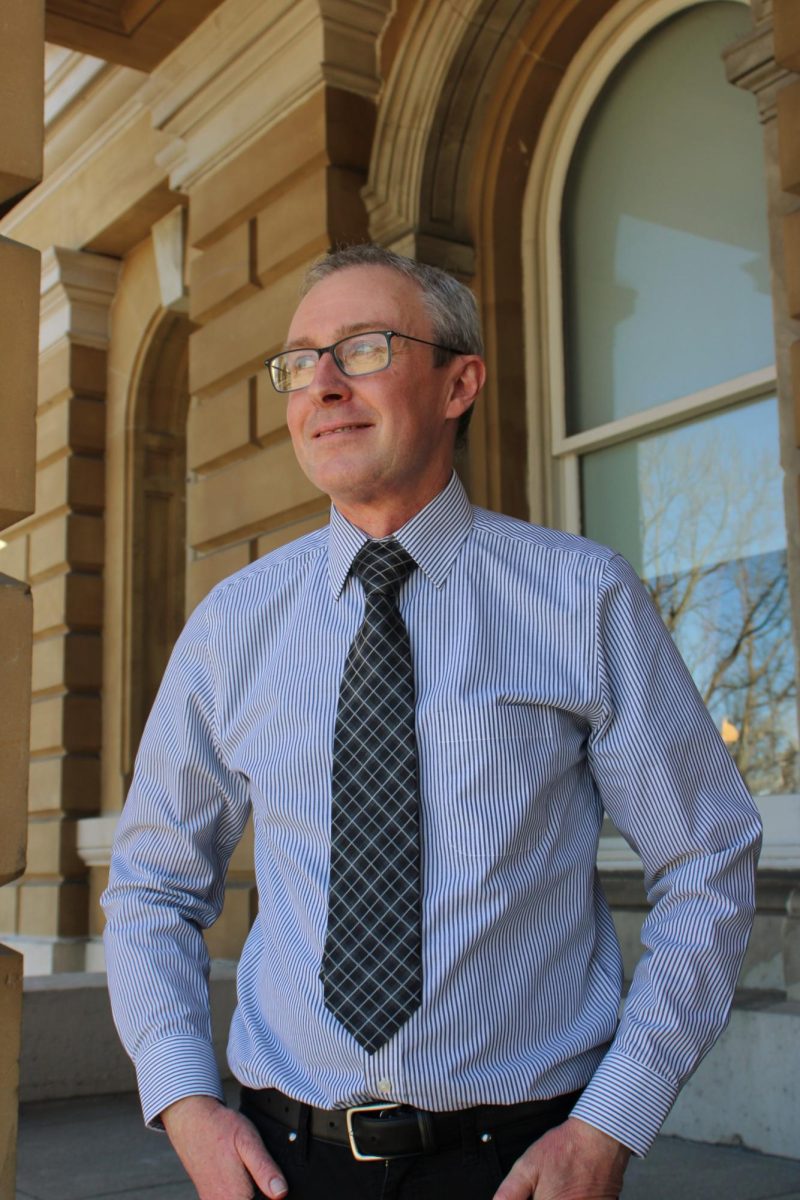Campus reacts to same-sex marriage decision
April 8, 2009
The Iowa Supreme Court struck down the 10-year-old ban on same-sex marriage Friday, making Iowa the third state in the nation to legalize same-sex marriage.
The decision came after the court unanimously ruled that banning same-sex marriage was unconstitutional and discriminatory. The ruling put Iowa in the international spotlight as a leader in civil rights and came as a surprise to students and faculty at Simpson College.
“The Iowa Supreme Court’s decision to allow same-sex marriage in Iowa was a total shock to me because it happened so quickly and quietly,” said junior Michael Christensen, co-president of Simpson’s Lesbian, Gay, Bisexual, Transgender and Questioning Alliance. “Since the judges’ votes were unanimous, I think that shows that Iowa is ready for this, surprisingly enough.”
Vermont followed suit Tuesday, becoming the fourth state in the union to legalize same-sex marriage. They were the first state, however, to do so through legislative action rather than a court ruling.
The topic of same-sex marriage in Iowa has been a heated issue in recent years. In August 2007, a district court judge ruled that the ban was unconstitutional and during the few short hours that same-sex marriage was legal, one couple was married.
It was not until last Friday, however, that it was officially made law.
“The court revealed the injustice of Iowa’s 1998 Defense of Marriage Act, which proved to be inconsistent with the doctrine of equal protection as outlined in the state constitution,” said Professor of English CoryAnne Harrigan, former adviser of LGBTQA. “So the ruling restores civil rights to a class of people that has historically suffered discrimination. As long as states are involved in the business of ‘marriage,’ whatever the word or institution means to people, state laws regarding marriage will and should be subject to judicial scrutiny.”
Members of the gay and lesbian community at Simpson said the legislation is a step toward greater equality for all people.
“The decision is a small step in what needs to be a giant leap toward equality in this country,” senior Jacob Kaufman said. “America prides itself in being a nation of justice for all, and that should include equal opportunity and recognition under the law. We have made an important step toward basing our legislation on ideas which recognizes all citizen’s civil rights, rather than basing our legislation on archaic religious and moral doctrine.”
The Iowa Supreme Court was clear in its decision that the law will not force any religious institution or group to perform same-sex marriages. Rather, it will only apply to civil unions.
Junior Nick White said that he does not see the law as either positive or negative.
“I am apathetic to the issue,” he said. “The decision does not infringe on my rights. I guess I don’t see the difference if they are married or not, because either way they are together. I know gay/lesbian couples, and if they want to get married, I would be happy for them.”
Mark Freyberg, professor and chair of the department of social science, opened his Sociological Theory class to the entire campus Tuesday to give students a facility through which to discuss the topic.
At the event, students raised questions such as whether the constitution could be amended and how the court came to the decision.
Carolyn Dallinger, assistant professor of social work and criminal justice, spoke at the event about the law that led to the decision, explaining that it could not be repealed without an amendment to the constitution.
White said that discussion about the issue among students, however, has been minimal.
“I haven’t heard too much about it on campus,” he said. “I’ve seen anti-gay marriage groups on Facebook that have popped up since the decision. This is, perhaps, most comparable to the civil rights movement of the 1960s. Acceptance will come with time.”
Christensen said that although controversy is at a fever pitch currently, it will hopefully diminish with time.
“I look forward to the time when our children and grandchildren see nothing out of the ordinary at the sight of two men or two women walking hand in hand with their children,” he said.












